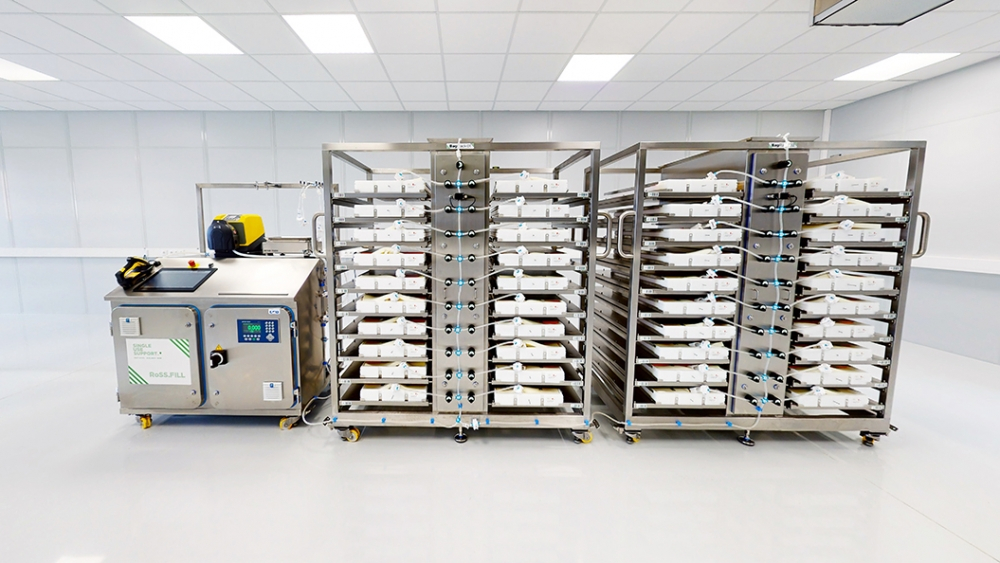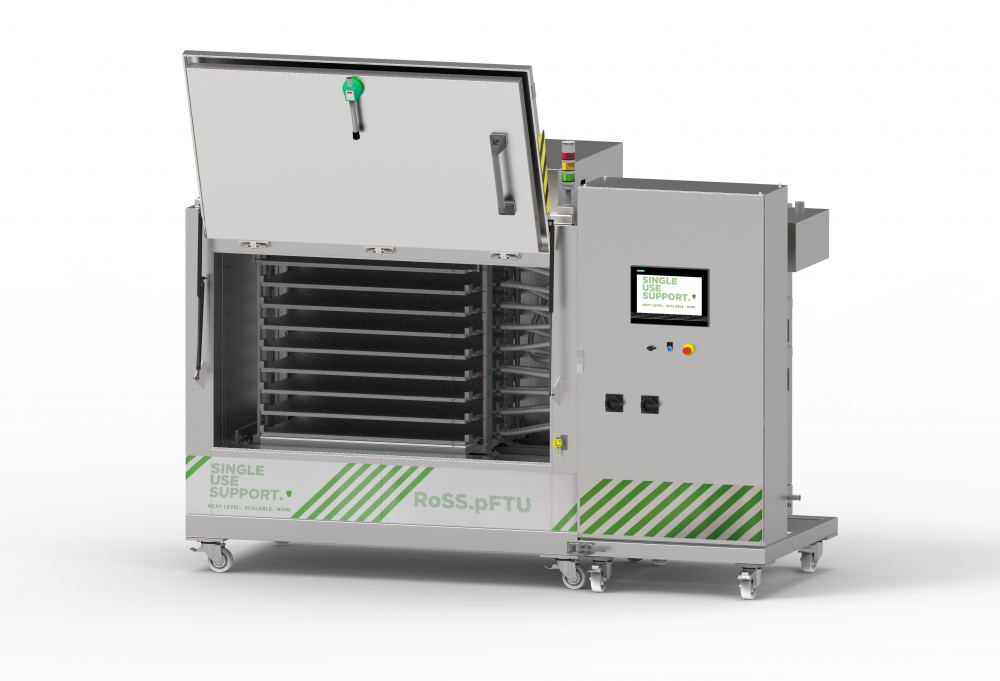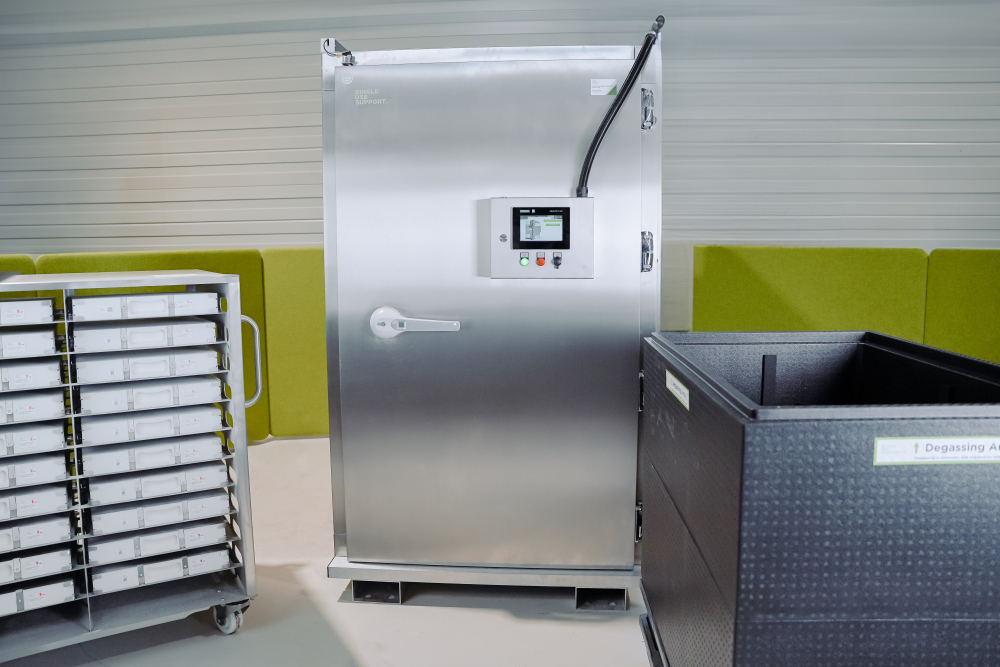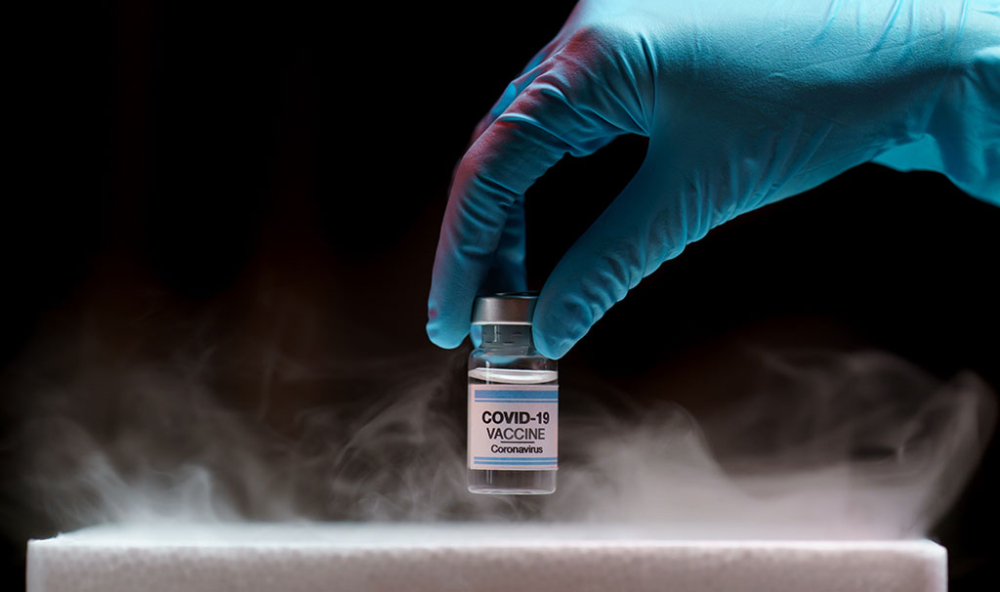mRNA vaccines: How to safely ship and store them
Table of contents
ShowIn the past few years, awareness of the mRNA vaccine supply chain has increased considerably, both in the pharma industry and among the wider public. These vaccines, including lipid nanoparticles and other components, require the highest level of diligence during transport and storage. Single Use Support has therefore made great efforts to develop solutions for cold chain management as well as in fluid transfer, to achieve maximum safety when shipping and storing biologics such as mRNA and lipids, another important raw material of these somewhat new vaccines.
mRNA plays a key role in the process of protein synthesis, when information stored in the DNA is transported out of a cell’s nucleus. This information contains the instructions needed to produce proteins. Now, this biological mechanism has been adopted and utilized by biotech, e.g. in vaccine production. Numerous manufacturers have joined the US government’s initiative “Operation Warp Speed” for working in partnerships to develop new vaccine formulations to facilitate mass immunization against Covid-19.
mRNA vaccine supply chain
The supply chain for mRNA vaccines must fulfill several criteria to ensure maximum product quality (e.g. the World Health Organization’s requirements for ultra cold temperature storage and transport of vaccines); therefore, it is essential to meet these regulatory conditions at all times. However, it is not sufficient to optimize the delivery process alone, as the preparations for transport begin at the manufacturer’s site.
Temperature plays an important role in the mRNA supply chain, as single vaccine doses must be kept at temperatures similar to those used in their clinical trials: -70 °C. To achieve consistency in the cold chain, which often is not equipped to deal with such low temperatures, optimization is necessary to protect pharmaceuticals and biologics from variations in temperature and must be achieved even before these products leave the manufacturer. Rapid and scalable manufacturing (including logistics) can help avoid shortages in Covid-19 vaccine supply.
Safe shipping and storage of mRNA vaccines through single-use technology
Single Use Support has developed novel single use technologies required for the transport of mRNA vaccines during the manufacturing process – from freeze-thaw technology and a safe cold chain shipping solution to integrity testing of pharmaceutical compounds.
Solutions such as the single-use bag protection RoSS Shell or the freezers from the RoSS.pFTU range are just some examples of the innovations developed by Single Use Support that provide integrity for the mRNA vaccine supply chain, beginning with the manufacturing process itself.
Controlled mRNA filling, filtration, and freezing for safe shipping
To ship RNA-based vaccines to Fill & Finish sites, where they are filled into single-dose vials at room temperature, they first need to be carefully filled into suitable bioprocess containers. As a solution in bulk production, with the ability to carry out filtration and fill a maximum of 300L per hour (necessary when coping with the scale-up of manufacturing capacities), RoSS Fill & Drain delivers a fully scalable platform to start the transport process, which is followed by the freezing of the single-use bags employed.

Considering the requirement in vaccine manufacturing for fast freezing procedures to achieve maximum product quality, plate freezing technology within the cold chain offers numerous benefits compared with blast freezing. Achieving temperatures as low as -80 °C, RoSS.pFTU was developed as a fully automated plate-based freeze-thaw system that provides indefinite scalability as well as flexibility, being compatible with single-use bags from all established manufacturers. It not only enables safe and fast freezing but also controlled thawing.
Ensuring quality standards during Fill & Finish: Secure thaw and drain processes for mRNA vaccine production
Once the consumables reach a fill & finish site, they cannot simply be removed from the refrigerator and poured into vials. Instead, their cautious freezing (vital when dealing with lipid nanoparticle-formulated mRNA vaccines) must be followed by an equally sensitive thaw and drain process. With the aim of allowing a seamless merging of these two steps in the mRNA vaccine supply chain, by maintaining the same high standard throughout the entire process, RoSS.pFTU is designed as a platform that unites both freezing and thawing in a single device.

This freeze and thaw platform offers full control over the prevalent temperature in order to adequately handle the individual requirements of different consumables. Subsequently, the draining process means the end of the supply chain is drawing near. From here on, single vaccine doses are further transported prior to being drawn up in a syringe and administered.
Shipping and storing mRNA vaccines – additional protective measures & ultra-cold storage
As a further measure to ensure consistency throughout the entire shipping and storing process and to maximize shelf life of mRNA vaccines, Single Use Support has developed specialized shipping containers. These containers provide protection for protective single-use bag shells such as RoSS Shells, allowing transport temperatures of less than -60°C for at least 6 days with the use of dry ice.
An additional element Single Use Support has developed to ensure a secure supply chain for biologics, including vaccine delivery at adequate storage conditions, is RoSS.ULTF, designed to provide ultra-cold storage temperatures required for the transport of many therapeutics. With a capacity of up to 300L and being stackable to achieve the greatest storage density, it allows a seamless transition from plate freezing to the thawing process, with the aim to maximize vaccine stability.
More about that topic:
Pharmaceutical cold chain management
Cold chain logistics with single-use bags
Storing and shipping frozen drug substances

Basic principles of mRNA vaccines
In order to understand why huge effort is taken by the pharma industry to provide optimal storing and shipping conditions of mRNA vaccines, one has to take a look at their fragile nature as well as their enormous potentials.
mRNA vaccines have emerged as a groundbreaking tool in the fight against pathogens and the ever-evolving variants they produce. Utilizing the unique properties of mRNA molecules, these vaccines have revolutionized the way we stimulate immune responses.
mRNA, or messenger RNA, is a type of nucleic acid responsible for encoding genetic information from the genome into proteins. In the context of vaccines, mRNA is used to instruct cells to produce a specific antigen (e.g. based on the spike protein in SARS-CoV-2), which activates immune cells and triggers an immune response. The in vivo delivery of mRNA is prepared in vitro, with specialized enzymes ensuring its stability and proper function.
To initiate the process, the desired mRNA sequence, encoding the antigen, is synthesized. The mRNA molecules are then encapsulated within lipid nanoparticles or other delivery systems to protect them and facilitate their entry into target cells’ cytoplasm.
Within the intracellular space, the mRNA is recognized by the cellular machinery responsible for transcription and translation. The mRNA is translated into amino acids, leading to the production of the antigen. This antigen is displayed on the cell membrane, triggering an immune response and the production of specific antibodies.
mRNA delivery vehicles
The delivery of mRNA is a critical aspect of mRNA-based therapeutics and vaccines. Among the various delivery systems available, lipid nanoparticles (LNPs) have emerged as a promising mRNA delivery vehicle.
LNPs are non-viral delivery systems with components like ionizable lipids, peptides, cationic lipids or cholesterol. These components work together to encapsulate and protect mRNA during delivery. LNPs can be lyophilized (i.e. freeze-drying) and reconstituted, but also frozen via plate freezing, allowing for easy storage and transportation.
One key advantage of LNPs in gene delivery is their ability to undergo endocytosis, the process of cellular uptake. Once inside the cell, LNPs are enclosed in endosomes. To ensure efficient release of mRNA into the cytoplasm, LNPs utilize ionizable lipids that respond to the acidic endosomal environment, triggering endosomal escape. This escape is crucial to prevent mRNA degradation by endosomal nucleases.
The particle size of LNPs also plays a crucial role in their effectiveness. Optimal particle sizes facilitate efficient uptake by target cells while minimizing clearance by macrophages.
While LNPs offer advantages such as high delivery efficiency and reduced toxicity compared to viral vectors, there are still challenges to overcome. Achieving the right balance between efficient cellular uptake and minimizing side effects requires careful selection of components and formulation optimization.
Viral vectors, such as plasmid-based vectors, provide efficient delivery but carry the risk of insertional mutagenesis and potential activation of host immune responses. As a result, non-viral delivery systems like LNPs have gained attention for their safe and effective RNA delivery capabilities.
mRNA therapeutics – promising in multiple applications
mRNA therapeutics have proven to be a versatile tool, extending beyond infectious diseases and showing great potential in various fields of application, including gene therapy, cancer therapy, and drug delivery.
In the realm of gene therapy, mRNA technology has opened new avenues for the development of mRNA-based therapeutics. By utilizing the unique characteristics of mRNA, such as its ability to encode proteins and stimulate immune responses, researchers can target specific cell types and deliver therapeutic molecules. This approach allows for the precise transfection of cells, enabling the treatment of various genetic disorders and diseases.
In the field of cancer therapy, mRNA has shown promise in the development of cancer vaccines. By encoding specific antigens, RNA vaccines can train the immune system to recognize and attack cancer cells. This approach activates T cells and stimulates immune responses, aiding in the fight against melanoma and other types of cancers. Additionally, mRNA therapeutics can be used to target dendritic cells, key players in the immune response, further enhancing the efficacy of cancer immunotherapy.
Furthermore, the flexible character of mRNA technology allows for efficient drug delivery. Through modifications to the mRNA sequence, researchers can deliver therapeutic molecules directly to target cells, bypassing potential barriers and enhancing the effectiveness of treatment. This approach holds promise for a wide range of diseases and conditions, offering new possibilities for personalized medicine and targeted therapies.

The Covid-19 vaccine: mRNA vaccines on the rise
In attempting to tackle the coronavirus pandemic and its global threat to public health, already early case studies of vaccine candidates have foreshadowed mRNA vaccines as a promising approach in the fight against SARS-CoV-2, the virus that causes Covid-19. Following unprecedented technology transfer as well as national programs such as Operation Warp Speed to support vaccine development, the US Food and Drug Administration (FDA) began to authorize some vaccine candidates for emergency use, which led to an increase in production capacities.
Since then, the newly developed vaccines against the coronavirus disease have brought a highly desired easing of the stress on healthcare systems worldwide, thanks to a range of (not only mRNA-based) products available from various manufacturers, like the Pfizer-Biontech vaccine or the Moderna vaccine based on messenger RNA.
With initiatives such as COVAX in place to support global vaccine distribution, stakeholders will need to further optimize the supply chain for mRNA vaccines. Single Use Support is ready to assist stakeholders in facing these challenges.









